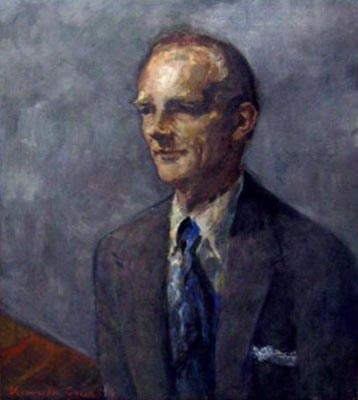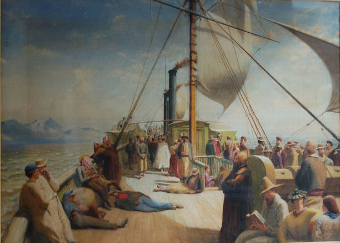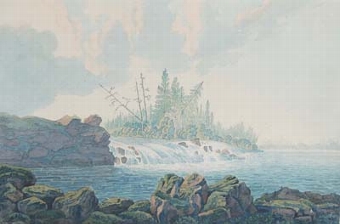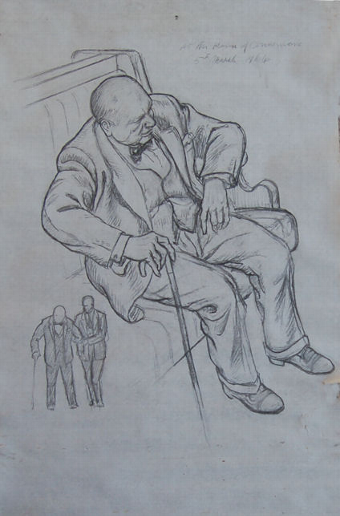portrait of lord paul gore-booth, baron gore-booth of maltby, gcmg, kcvo, (1909
- View other items in:
- antiques interior design modern and vintage
- other interior design
artware ltd
Enquire about this antique
Artware Ltd has 565 antiques for sale.
click here to see them all
Booth, Paul Henry Gore-, Baron Gore-Booth of Maltby (1909?1984), diplomatist, was born on 3 February 1909 at Doncaster, Yorkshire, the elder son of Mordaunt Gore-Booth (1878?1958), of 37 Hall Gate, Doncaster, second son of Sir Henry Gore-Booth, fifth baronet, and manager of the Vickers Tyre Mill at Doncaster, and his wife, Evelyn Mary (d. 1963), daughter of Robert Stanley Scholfield, of Sandhall, Howden, East Riding of Yorkshire. The second of their three children, a daughter, died in infancy. He was educated as a King''s scholar at Eton College, whence he won an open scholarship to Balliol College, Oxford, in 1928. He obtained second classes in literae humaniores (1931) and philosophy, politics, and economics (1932). An active Christian Scientist from boyhood and a lifelong teetotaller, he came from families known in public life in Ireland and in Yorkshire. One aunt, Constance Markievicz, the Irish nationalist leader, was the first woman elected to Westminster; another, Eva Gore-Booth, was a prominent suffragist. From his family Gore-Booth inherited musical and literary talent, an engaging streak of eccentricity, and a keen sense of duty. In 1933 Gore-Booth entered the diplomatic service with the rank of third secretary. Having served in the Foreign Office and in Vienna he was promoted to second secretary in 1938 and moved to Tokyo. On 21 September 1940 he married, in Tokyo, Patricia Mary, daughter of Montague Ellerton, company secretary, originally from Adelaide, South Australia, but then residing in Kobe, Japan. They had twin sons, the elder of whom was Sir David Alwyn Gore-Booth (1943?2004), who followed his father into the diplomatic service, and two daughters.
In December 1941 Gore-Booth was the senior official resident at the British embassy in Tokyo, and was the recipient of Japan''s declaration of war. He was then immediately interned for nine months. On his release, in August 1942, he joined the highly talented team assembled in the British embassy in Washington, with the rank of first secretary. There he participated in several major conferences at which post-war reconstruction was being planned and which culminated in the San Francisco conference of 1945 which established the United Nations. He then served as secretary to the British delegation at the first meeting of the United Nations, in January 1946. From 1945 to 1949 Gore-Booth was engaged in political and economic work in the Foreign Office as head successively of the United Nations (economic and social) and the European recovery departments. In 1949 he was appointed CMG. In the same year he came for the first time into the public eye. His appointment as director of the British Information Services in the USA was initially questioned by the British press, on the grounds that the post should be filled by a more senior figure, and one with more experience of dealing with the press. Despite the difficult background of declining British power he was successful and retained the respect of the press for the remainder of his career.
In 1953 Gore-Booth was sent as ambassador to Burma, where he and his wife made a particularly strong impression at a difficult time. In later years the Gore-Booths gave a home to the daughter of Aung San, the murdered Burmese leader, while she studied in Oxford. Daw Aung San Sun Kyi subsequently became leader of the opposition to the military regime in Burma, and was awarded the Nobel peace prize in 1992. For his services in Burma, Gore-Booth was promoted KCMG in 1957. In 1956 Gore-Booth returned to London as deputy under-secretary in charge of economic affairs?a newly created post. His arrival coincided with the Suez crisis. Consistent with his character he was not silent in his opposition to government policy, and he was the prime mover behind a departmental ?round-robin? protesting at the government''s actions. He later declared that he had come near to resignation over Suez. For the next four years he was prominently involved in the unsuccessful negotiations to reconcile the conflicting views of the United Kingdom and the continental powers on the economic development of Europe. His own disappointment in the failure was diminished by his personal role as one of the ?three wise men? (the others being Warren Randolph Burgess of the USA and Bernard Clappier of France) whose report led to the transformation in 1960 of the Organization for European Economic Co-operation into the Organization for Economic Co-operation and Development, which included the USA and Canada.
In 1960 Gore-Booth was chosen, unusually for a diplomatic service officer, for the Commonwealth post of high commissioner in India at Delhi. This was at a time when relations between the United Kingdom and India were particularly sensitive. During his appointment Delhi was frequently the scene of great diplomatic activity involving Pakistan, Kashmir, China, and Congo. Gore-Booth was characteristically active and was well liked by the Indians for his frankness. During his time in India, he was appointed KCVO in 1961, and he was advanced to GCMG in 1965. In February 1965 Gore-Booth was recalled to the Foreign Office to succeed Lord Caccia as permanent under-secretary, from May that year. This was a surprise to him and others who thought his talents suited him better for another important post abroad. But political factors had intervened. Gore-Booth, who had never been closely associated with Conservative policies, had been chosen the previous year by the new Labour foreign secretary, Patrick Gordon Walker. Gordon Walker failed to secure a parliamentary seat and was succeeded in January 1965 by Michael Stewart, who worked smoothly with Gore-Booth, describing him in his autobiography as ?wise and urbane? (Stewart, 207). In August 1966 conflicts in the cabinet led to George Brown''s becoming foreign secretary. There was nothing in common between Brown and Gore-Booth, who found it a hard task to adjust himself and his department to the foreign secretary''s flamboyant, provocative, and often brutal style. In spite of this he was scrupulously?some said unduly?loyal to his chief. Nevertheless, he was relieved when Stewart once again became foreign secretary in March 1968.
In February 1969 Gore-Booth (who had also become head of the diplomatic service in 1968) retired. His four years of office had been particularly anxious. The economic situation of the country hampered an international role when ministers wished to show a high profile. The atmosphere was poisoned by the Vietnam War, fighting in the Middle East, the Nigerian civil war, and the beginning of trouble in Rhodesia. In addition, there were jealousies in the cabinet. The diplomatic service itself had been thrown off balance by the Duncan report proposing internal changes and by the abrupt amalgamation with the Commonwealth Office. Few contested the logic of the amalgamation but not everyone was prepared for its effect on their own careers. Gore-Booth oversaw the inevitable reductions of senior posts with fairness. His sympathy was sincere but it was not his nature to parade it. No one could impugn his integrity or his intense devotion to the public service. Following his retirement, Gore-Booth was made a life peer in 1969 and became a regular attender at the House of Lords where he spoke elegantly from the cross-benches on a wide variety of subjects. After a successful operation for cataract in both eyes, he was an active chairman of Save the Children Fund (1970?76), chairman of the board of governors of the School of Oriental and African Studies (1975?80), and chairman of the disasters emergency committee (1974?7). From 1967 to 1979 he was president of the Sherlock Holmes Society which in the words of an observer permitted him, ?suitably attired and giant eyebrows bristling, to play the lead in a reconstruction on the spot of his hero''s dramatic end? (The Times). His autobiography, With Great Truth and Respect, appeared in 1974, and he edited the fifth edition of Satow''s Guide to Diplomatic Practice (1979). He died at Westminster on 29 June 1984. A memorial service was held in his honour at St Margaret''s, Westminster, on 25 October.
Joined Foreign Service, 1933; FO 1933-36; Vienna, 1936-37; Tokyo, 1938-42; Washington, 1942-45; FO, 1945-49; Head of UN (Economic and Social) and Refugees Depts, 1947-48; Head of European Recovery Dept, Foreign Office, 1948-49; Director British Information Services in United States, 1949-53; Ambassador to Burma, 1953-56; Deputy Under-Secretary (Economic Affairs), Foreign Office, 1956-60; British High Commissioner in India, 1960-65; Permanent Under-Secretary of State, FO, 1965-69; Head of HM Diplomatic Service, 1968-69. Hot Springs Food Conference, 1943; UNRRA Conference, 1943; Chicago Civil Aviation Conference, 1944; San Francisco Conference, 1945; UN Assembly, 1946 (Sec. of UK Deleg.) January and October and 1947; British Representative, Group of Four drafting Convention setting up OECD. Chairman: Save the Children Fund, 1970-76; Disasters Emergency Committee, 1974-77. Chairman Board of Governors, School of Oriental and African Studies, University of London, 1975-80. President Sherlock Holmes Society of London, 1967-79; Chairman, Windsor Music Festival, 1971-73.
Antiques.co.uk Ref: RF3N74CF
- Materials:
- Oil on Canvas
- Width (cm):
- 76.20 x 60.96 cm 30.00 x 24.00 ins
Artware Ltd
Artware Fine Art specialises in fine antique, decorative and historical portraits and topographical pictures . We cover a period from the 17th and 18th centuries through to the 19th & 20th Centuries. We have over 150 portraits in stock, which can be viewed on our web site, each historical portrait has well researched biographical information both on the sitter and the artist.
Contact details
18 La gare
51 Surrey row
London
Greater London
SE1 0BZ
UNITED KINGDOM
T: 0207 921 97904
E: greg@artwarefineart.com
W: www.artwarefineart.com














